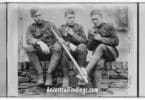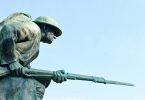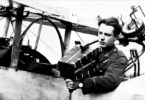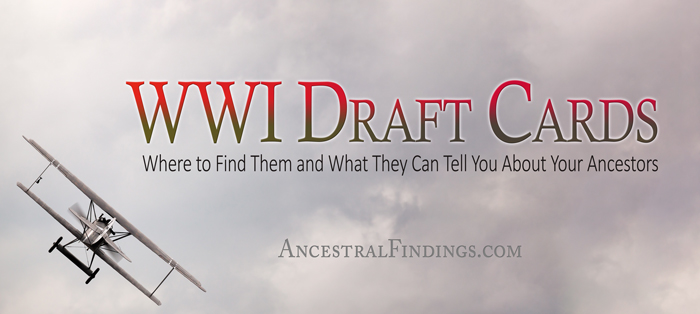WWI ended a hundred years ago. On the one century anniversary of the “Great War” (as it was called at the time), it is the perfect time to research the lives of your ancestors who fought in it. Maybe you knew one or more WWI ancestors personally, or maybe you just heard about them from other family members. Either way, their military service during the first war to involve the entire world should be of interest to you as a genealogist. And, WWI service is about more than just what unit they served in, what battles they fought in, and their military medical and pension records. There is also something called Honor Rolls that you can use in your WWI research. Here is what you need to know about them, and how they can give you details about your ancestor’s WWI service that you will not find anywhere else.
Honor rolls are not just something that children can achieve with good grades in school. They were also used to distinguish those who assisted the war effort in some significant way during WWI. Even non-soldiers can be on them, such as women and non-serving men (and even children) who did something distinguished on the home front to help the war effort. You will find people on honor rolls for WWI who did things like worked in factories, conserved food, knitted for the troops and kept morale up in their home communities while the soldiers were away.
You will find WWI honor rolls in several different formats, such as newspaper articles, commemorative plaques, and even books about the war (especially ones on local history and the war). The use of honor rolls for WWI started soon after the war was over when a countrywide effort to honor those who distinguished themselves had strong support from just about everyone, as almost everyone in the United States had been affected by the war in some way. Originally, it started by individuals or groups sending letters to returning soldiers or the families of deceased ones that told of their distinguished service from the point of view of someone who had witnessed it personally.
Eventually, these individual letters found their way into local newspapers, and then those newspapers began seeking out stories of those who distinguished themselves in battle or on the home front during the war. When the stories became too numerous to print individually, they turned into lists, or rolls, of the names of the distinguished individuals and what they did to serve their country or community. If the people on the honor rolls were soldiers, their dates of entry to and discharge from the military were usually (but not always) included. These were the first WWI honor rolls.
You will find many types and examples of honor rolls from WWI in old newspaper records. Using any of the paid newspaper membership sites and free ones, you will discover honor rolls that can give you truly personal details of what your WWI ancestor did to serve his or her country. Sometimes, a picture of the individual is even included on the published roll. Photographs were especially likely to be used if the individual being honored died in service or prior to deployment.
Since these are war records, most of the names you will encounter on honor rolls will be men… but not always. There were female nurses and switchboard operators who served with the rank of soldiers during WWI and were sometimes deployed with the men.
There are a variety of ways in which you may find honor rolls. Some of them were “category” honor rolls, such as honoring those who served who graduated from a particular high school or university, who worked at a particular company, or who lived on a particular block or street. Other times, the honor rolls will simply list people from the community who served, in alphabetical order, or in the order in which their information was received by the newspaper (if it was publishing honor rolls on a regular or semi-regular basis).
In addition to the newspaper honor rolls, which are the most common, you will also find them published in local, and even national, books on the war, on plaques in individual communities (or museums, historical societies, or meeting halls of veterans’ groups), and even framed on parchment paper in high schools, colleges, city halls, and archive buildings.
If you want to find honor rolls for WWI that mention your ancestor, check online newspaper databases, searching in your ancestor’s community as well as nationwide. Also, look for books on the local impact of the war in your ancestor’s community’s public library or historical society/archives. You may also be able to find these books in digitized form on history websites or on the websites of local libraries. These books often documented the efforts of entire towns, and even counties, in assisting with WWI.
Simply searching “honor roll” or “honor roll of” on digitized book sites will often give you a nice list of honor roll books they have that you can view online. One of them may be pertinent to your research. You can also search the public libraries and archives of your ancestor’s community or county for these books, or their websites (to see if they have digitized the books and made them available online).
Or, if you are in your ancestor’s community, you can simply wander into the local public library or archives/historical society and look for any printed, framed honor rolls or plaques they may have in their keeping. You can also ask where any honor roll plaques may be placed in the community, as the people who work at these places will be able to tell you.
Remember, these are valuable resources that will give you information on men and women in your family who did extraordinary things for the WWI effort at home and abroad. Most of these things will not be in their service records. The honor rolls give you the information you may not find anywhere else.





